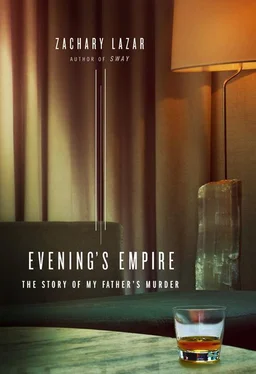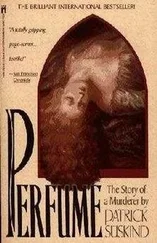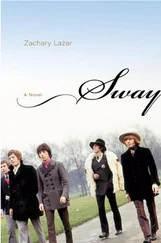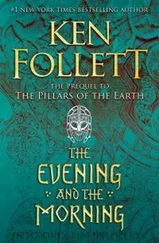On-screen, the handsome, sixty-year-old Warren moved slowly and confidently down a courthouse hallway, trailed by reporters and cameramen. He was faintly smiling, well dressed in a conservative gray suit, his hands either crossed in front of his waist or in the pockets of his pants. He looked as if the extent of his secrets was faintly comic to him, as if no one would ever suspect half the things he knew, or as if most of what he had done would be impossible to prove. He seemed to know all of this as he walked the courthouse hallway, and he wasn’t wrong.
I have an essay my father wrote when he was twelve years old, a schoolboy’s essay about the Hebrew poet Hayim Bialik. In 1946, the essay won first prize (“Choice of $25 U.S. Savings Bond or a week at Herzl Camp”) in an annual contest held by the Minneapolis Zionist Youth Commission.
… Bialik’s popularity should not only be attributed to his poetic genius, but also to his personality in general, to his brilliancy of thought and to his responsoveness [
sic
] to the needs of his people.
As long as there lives a Jew who still delights in beauty, imagery, and poetry, so long will the immortal words of Hayim Nachman Bialik be found on the lips, in the minds and in the hearts of Israel.
When I first discovered this essay, I saw in it evidence of a straight-A student, earnest, eager to please. When I looked at it a little longer, I saw evidence of a boy smart enough to conceal a total lack of interest in the poems of Hayim Bialik beneath a lilting arrangement of phrases (“on the lips, in the minds and in the hearts of Israel”). I don’t know how to connect the fact that my father saved this essay and prize citation with the fact that he was murdered in a garage. His story refutes an idea I seem still incapable of outgrowing, the idea that who we are plays some part in shaping our lives, or, as Heraclitus put it, that character is fate.
Five bullets. One in the back of my father’s head, four in his chest. At nine o’clock in the morning on February 19, my father, arriving at work in an office building on Phoenix’s North Central Avenue, was met by two hit men from Chicago, Lee DiFranco *and Robert Hardin, who forced him into a stairwell and shot him five times with a.22 semiautomatic pistol fitted with a homemade silencer, probably a Coke bottle. They left the shell casings on the ground but unscrewed the fluorescent light in the stairwell to prevent anyone from discovering too soon what they’d done. After taking whatever cash had been in my father’s money clip, DiFranco, according to Hardin’s account, placed a dime on my father’s forehead. They left behind his car keys and credit cards, and they left his briefcase on the ground outside the opened door of his Pontiac Grand Ville. They were paid $10,000 for this. Neither of them ever went to jail.
. . .
Ned Warren didn’t speak on the CBS Evening News of February 21. He was “not available to newsmen,” the reporter said.
Instead, the next person to speak was Attorney General Bruce Babbitt, future candidate for president, future secretary of the interior, at that moment riding the land fraud scandals in Arizona toward the state’s governorship. In 1975, he was gangly and wore glasses, and he hunched forward in his chair like a graduate student in a seminar room. “As a prosecutor,” he said, clearing his throat, “I’m not about to speculate publicly about who murdered Ed Lazar. But when a man with Lazar’s knowledge and background is murdered on his way to the grand jury, in the style in which he was murdered, it would be very coincidental to attribute it to some extraneous reason that is not related to those facts.”
The last man to speak put it more bluntly. He was another of Warren’s former business associates, a man named James Cornwall. He was tall and slightly jowly, with the sideburns and pomaded hair of the revivalist preacher Billy Graham — appropriate, since Cornwall had just become a minister himself. His suit and tie were of an expensive-looking subtle plaid, and he sat with one hand across his knee to reveal an elegant wristwatch. He seemed at ease, despite the fact that he was facing sixty-six counts of fraud, forty years in prison.
“Mr. Warren has told me he had the ability to pick up the phone and have people maimed or killed,” Cornwall said. “I believed it at the time, and I believe it now.”
On the afternoon before this story appeared on the CBS Evening News, more than four hundred people had attended my father’s memorial service at the Sinai Mortuary Chapel, which did not have enough seats for such a large crowd. There were my parents’ friends — the Korts and the Goodmans, the Finebergs and the Starrs, the Kobeys and the Shers — young Jewish couples, their children in school for the day. There were our next-door neighbors, Carol and Dick Nichols, who had taken me the night before with their sons, David and Craig, to a soapbox derby and spaghetti dinner to give me some time away from the confusion of adults crowding our house. There were members of the Jewish Community Center, where my parents played tennis, and of Temple Beth Israel, where my sister, Stacey, and I went to the annual Purim carnivals dressed in costumes my mother made out of towels, construction paper, and glitter. There were my grandparents on both sides, my aunts and uncles. There were the associates of Gallant, Farrow, and of Laventhol, Krekstein, Horwath and Horwath, the accounting firms my father had worked for before and after his stint in the land business. David Rich, the London born entrepreneur, was there. Ned Warren, though he had befriended my parents socially in the four years my father was his business partner, was not.
None of it made any sense to the people at the memorial service — this story of hit men in a stairwell, Ned Warren picking up a phone and ordering them there. It was something out of a movie — not even a realistic movie. There was the grief over the young man they’d all had a special liking for, and then there was the sense that his death would never seem real, that the sudden violence was so incongruous with his personality that the two could not be held in the mind at the same time. They thought about my father’s sly smile, the way he sometimes seemed to look at everybody from an amused distance, and then they thought about the front-page photo of his body slumped in a stairwell, the banner headline: Grand Jury Witness in Probe of Warren Is Slain Gang Style. His friends were in the furniture business or in real estate, practiced law or accounting or engineering. Their wives played mah-jongg and tennis and golf. Like my father, the men rooted for the ASU football team, took their families on vacation to Lake Havasu or San Diego. My father could be quiet. There was something he held in reserve, a mystery about him, even a romance, but there wasn’t crookedness, there wasn’t criminality. He was not your average CPA — women liked him, he had an adventurous side, he liked to drink. This adventurous side may have been why he got into a risky business like land development in the first place. But no one at the memorial service imagined he had “ties to the underworld,” or even knowledge of enough wrongdoing to be murdered. No one thought that.
In the parking lot outside, a reporter named Al Sitter from the Arizona Republic was taking down license plate numbers to see if any of them corresponded to figures of organized crime. The shame, added to the grief, was now beginning. Before long, my father would be appearing in news stories as the “lieutenant” to Ned Warren’s “Godfather,” the one man, now dead, who had “intimate knowledge” of the full extent of Warren’s criminality. Eventually, my father would come to look like a con man with a flashy suit and a Cadillac, or even a full-blown mobster, perhaps a relative of the Jewish gangster Hymie Lazar, as one line of thought ran. He was murdered twice in this way.
Читать дальше












